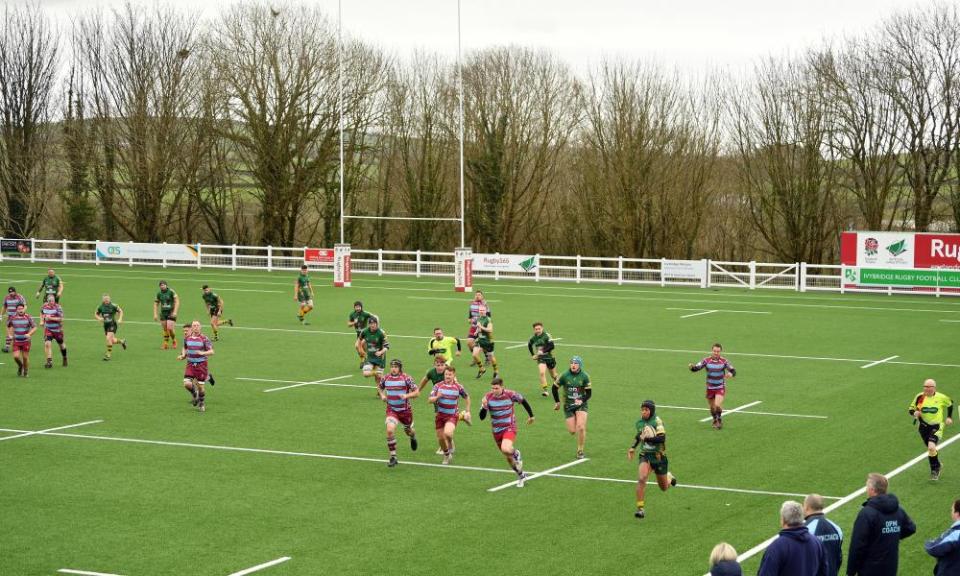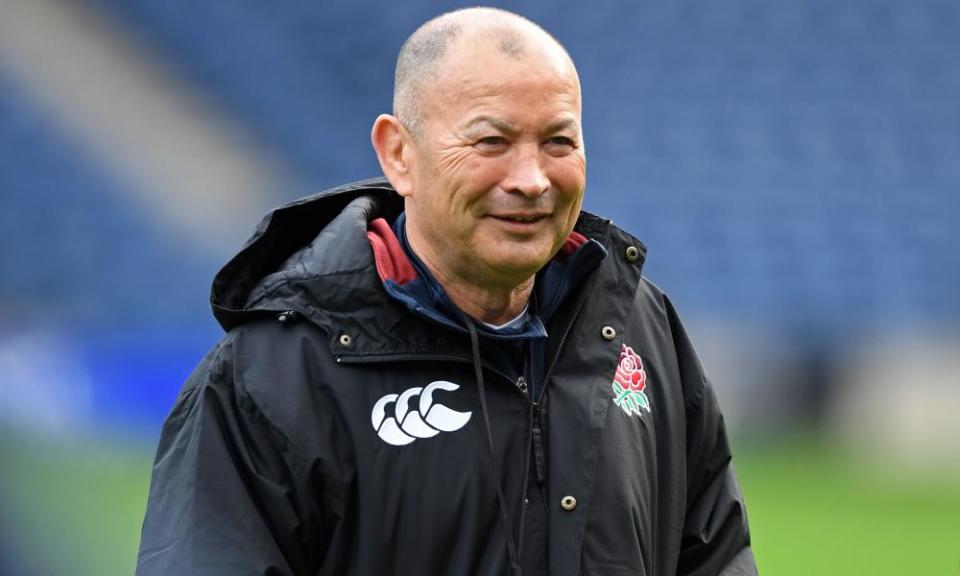How can rugby prevent a lost generation amid the Covid crisis?

There is a paragraph within Edward Griffiths’ thought-provoking 76-page proposal for a radical revamp of English rugby that says it all. “When historians reflect on the development of English rugby since the start of professionalism in 1995, they will surely wonder why so much time and energy was wasted on narrow-minded in-fighting,” the former Saracens chief executive writes. “Rugby union in England is neither rich enough nor large enough to be able to afford the luxury of petty bickering.”
Griffiths used to be a journalist and can still turn a phrase. More crucially, his eventful years in rugby administration have given him a clear insight into the sport’s structural deficiencies. Hence the relevance of a document outlining exactly how the English game might be streamlined and recast by reinventing the Championship as a viable and attractive “heartland” competition with the country’s best young players front and centre.
Related: Covid-19 will lead to correction in price of TV sports rights, says BT Sport
The vision also incorporates pooled Championship television rights potentially worth £12m a year, a player draft, university-based regional centres of excellence, more emphasis on education and skills in preparation for life after rugby, and a very different vibe, with the A League and existing Premiership academies disappearing and the landscape no longer scarred by self-interest. “If people can see past petty issues of ego and control, and focus on what it is fundamentally right for the game, this model will be welcomed on all sides,” Griffiths concludes.
Certain Premiership clubs have wasted no time dismissing that notion as wishful thinking; one prominent chairman has described it a “fantasy” despite the initial proposed moratorium on Championship promotion. It was always going to be a leap of the imagination to visualise every club embracing the idea of losing control of their beloved, often successful academies. Equally, though, club rugby union is a sport under financial siege. The longer Covid-19 hangs around, the greater the threat to its viability.

Which is why, amid the natural anticipation generated by the Gallagher Premiership’s impending resumption, it pays to keep an eye on the wider picture. Spare a thought, in particular, for those most vulnerable to the chill draught of Covid reality: lower league clubs with shuttered bars and silent clubhouses, experienced pros suddenly high and dry in a bleak job market and thousands of youngsters denied the life-enhancing gift of proper competitive rugby for the foreseeable future.
The earliest possible date for rugby’s return at level three and below seems likely to be November but it could be January or even later if a serious second wave of infections materialises. How do you rate a teenager who has not played in anger for a year and for whom all developmental avenues are blocked? Can you blame him or her if they start losing interest in a sport they cannot smell or touch? And if the game’s roots start to wither and die, what happens then?
At this point all eyes inevitably swivel to the Rugby Football Union, both for guidance and visionary leadership. Who would wish to swap places with Bill Sweeney, the chief executive, as he wrestles with multiple headaches and culls a third of the union’s staff? Even so, the mood out in the shires is turning mutinous, with a growing perception the community game is being unduly penalised to protect the over-fattened cats at the top.
Plymouth Albion’s commercial director, Chris Bentley, speaks for many, arguing that Twickenham’s focus is misplaced. “I’m hugely disappointed in the RFU. The most important thing has to be the England team but the challenge is to support everybody. I appreciate it’s difficult but it used to be set in stone that there would be a 45-55 funding differential between the elite game and the community game. We’re now almost looking at a 70-30 split. It’s absurd to see Eddie Jones earning four times what the prime minister earns when rugby union is in such a perilous state.”
Jones and other senior executives, in fairness, have taken pay cuts with the players set to follow, but Bentley proposes that reductions in England’s £25,000 per-man match fees should go directly to those in greatest need. “What about the players receive £10,000 a game instead and the £1.4m saved is used to re-employ the community coaches facing redundancy? It’s a binary argument as I see it. Either the top of rugby has to take a pay cut or the top tier floats off on its own and you have to regionalise the rest on a part-time basis.”

To a large extent financial ring-fencing is already here, although the pandemic may yet snare a couple of Premiership sides among its victims. Others, though, argue that the RFU should seek to transform a negative into a positive by redrafting its player development model along the lines advocated by Griffiths.
The former England U20 coach John Fletcher, whose Magic Academy aims to help coaches give players a more enlightened rugby experience, believes there is significant scope for change. “Let’s not just simply cut stuff and get rid of people. Now’s a good time to ask: ‘Can we be more effective but with less money?’ I think Edward’s paper is a fantastic piece of work; it’s not just a stick-on or an exercise in appeasing people. What the game has largely done is put plasters on things. I don’t think we’ve been that creative.”
There is also an element of giving hope to the next generation in danger of getting cast adrift by a combination of cutbacks and inaction. Take sevens, which the RFU seems to have forgotten is a highly marketable, skilful Olympic sport (it recently cut its men’s and women’s squads). The GB men’s captain, Tom Mitchell, is convinced a huge trick is being missed. “I believe sevens will flourish massively in the future. It already is in other countries. We just seem to be slow in getting behind it and organising around it here.”
Instead Mitchell is filling his time coaching Brazilian kids online as part of his work for the UmRio charity, which supports young people in the favelas, and representing the UR7s organisation which, in the absence of any other clear route, tries to offer a pathway for those aspiring to play professional sevens. How good would it be if his own sport somehow finds a way to thrive in adversity and improves the lives of a few more people closer to home.

 Yahoo News
Yahoo News 